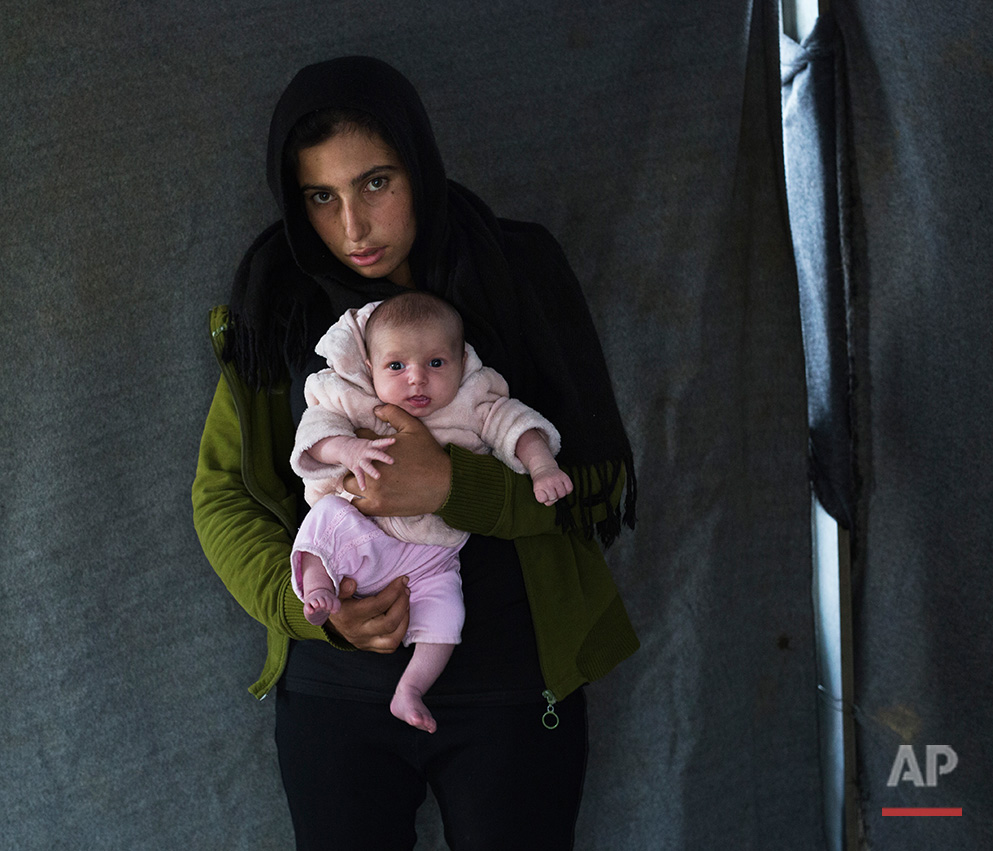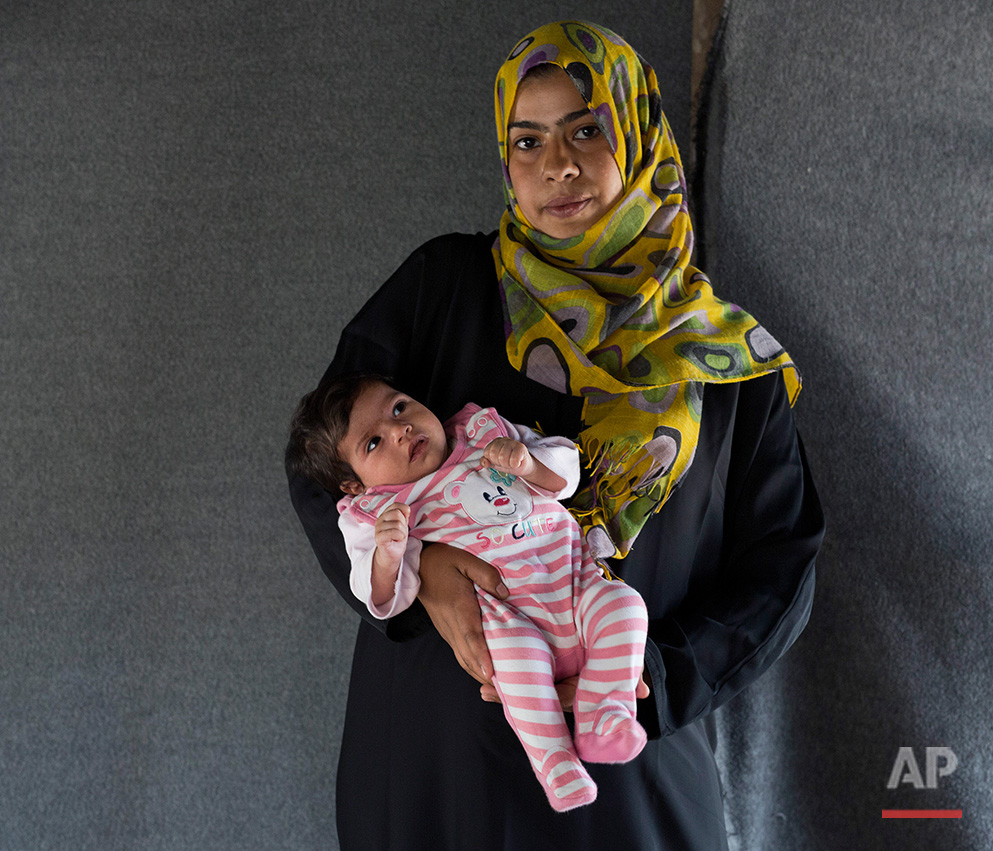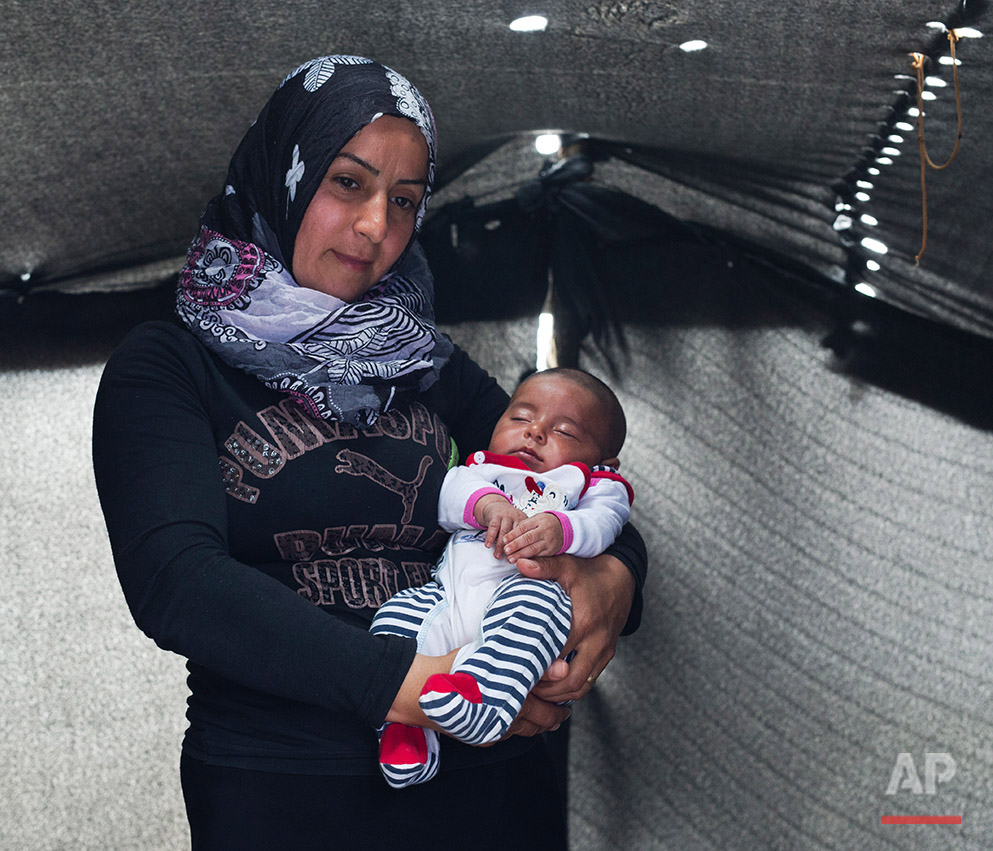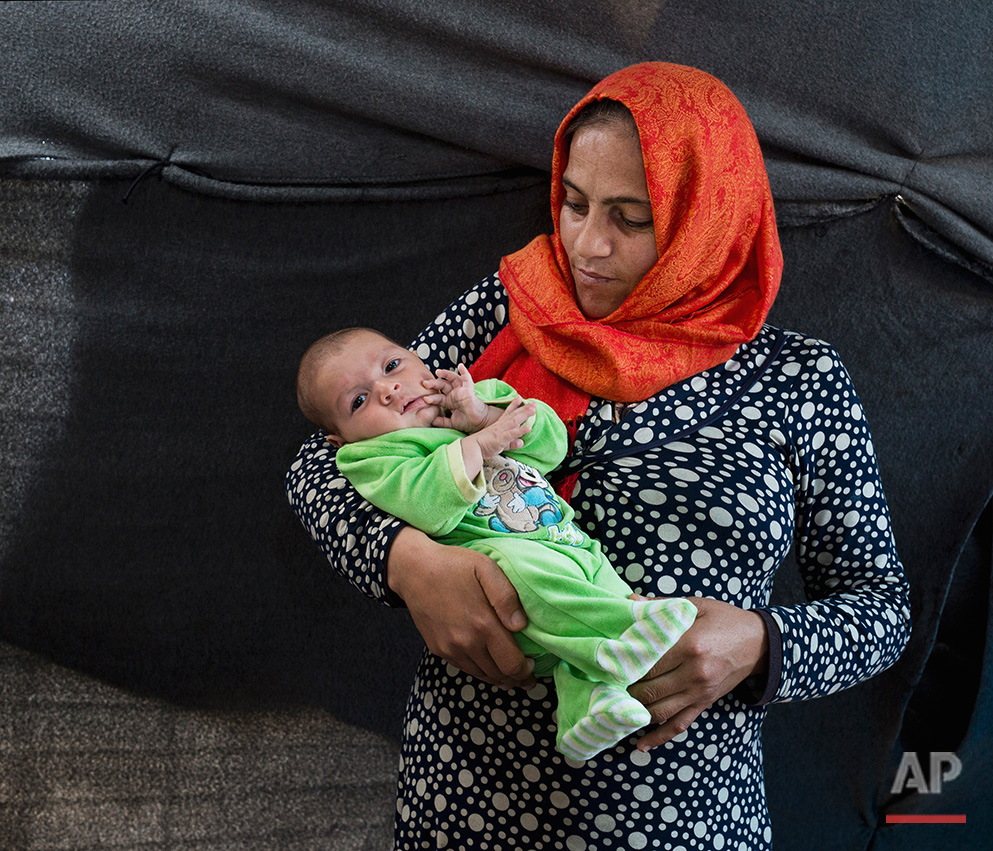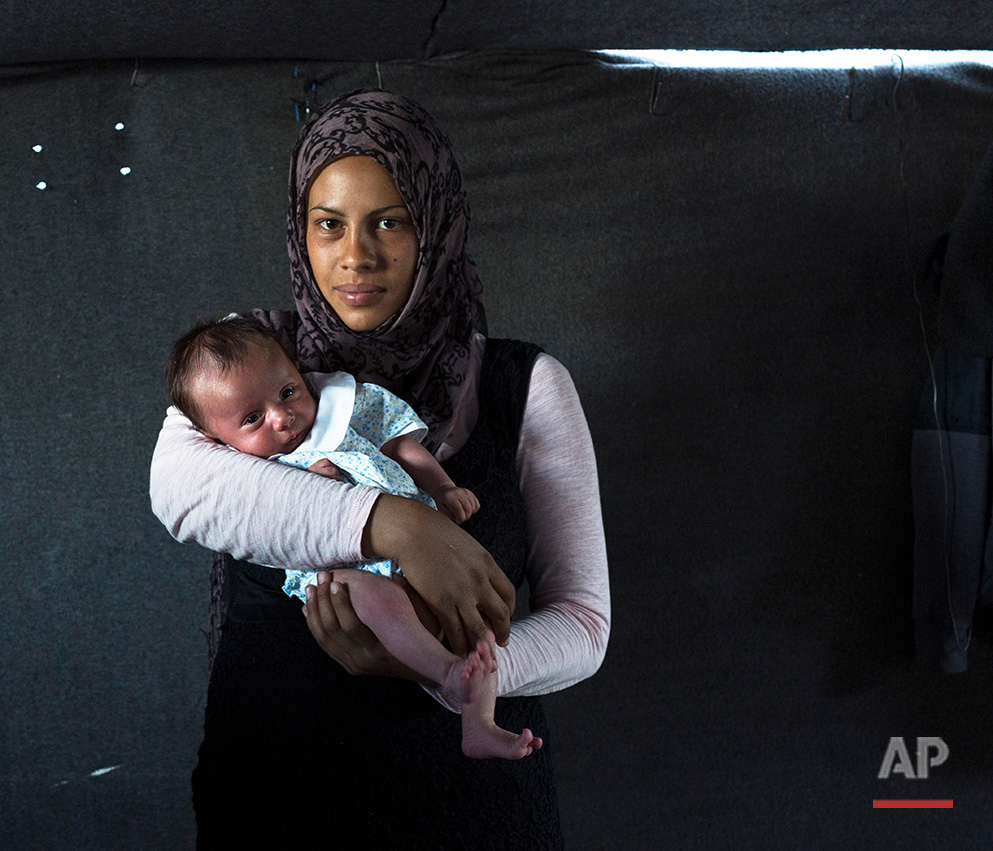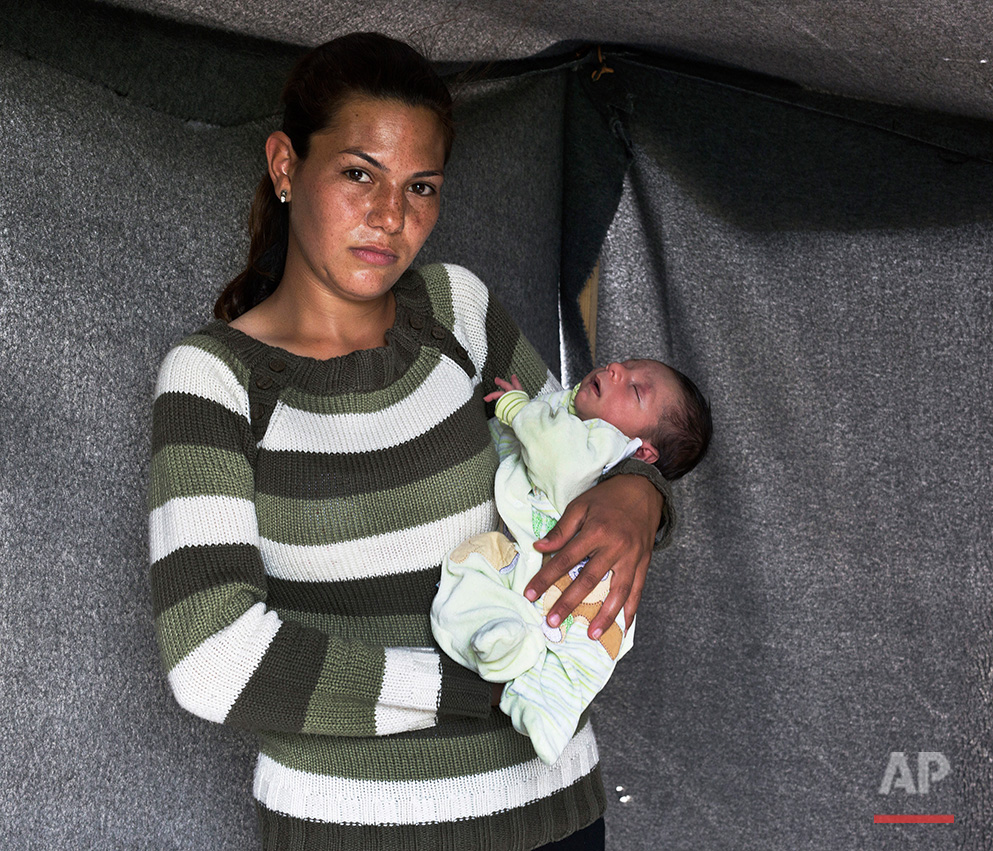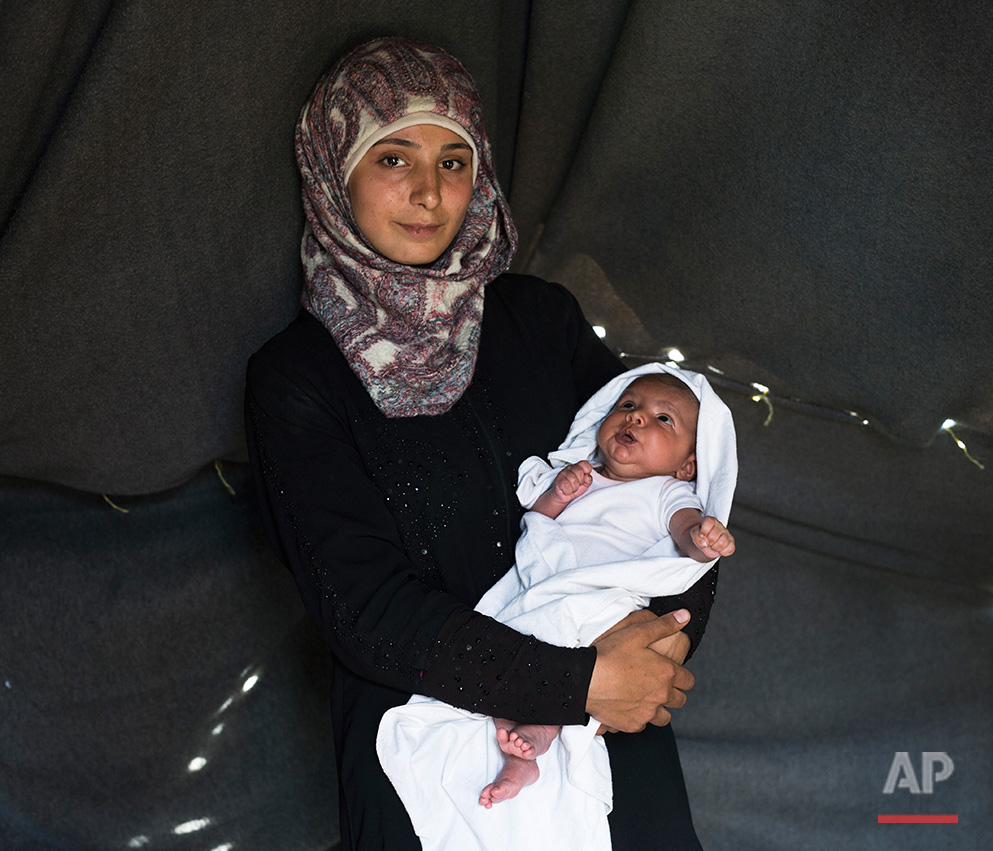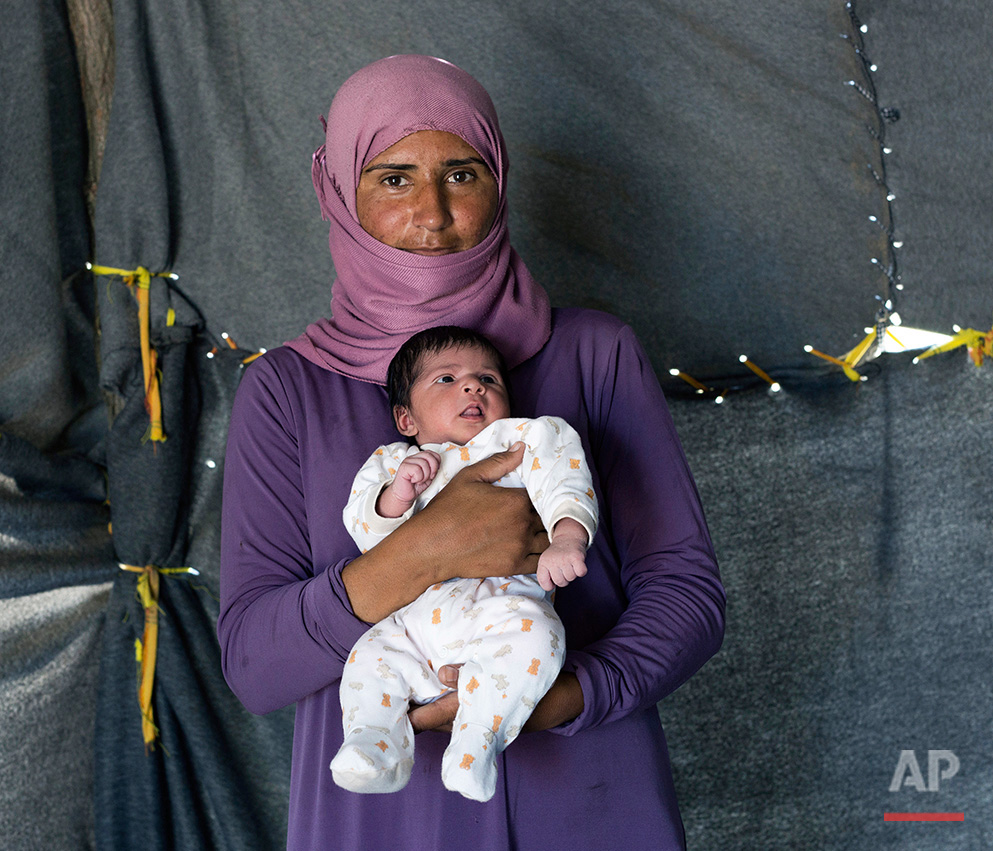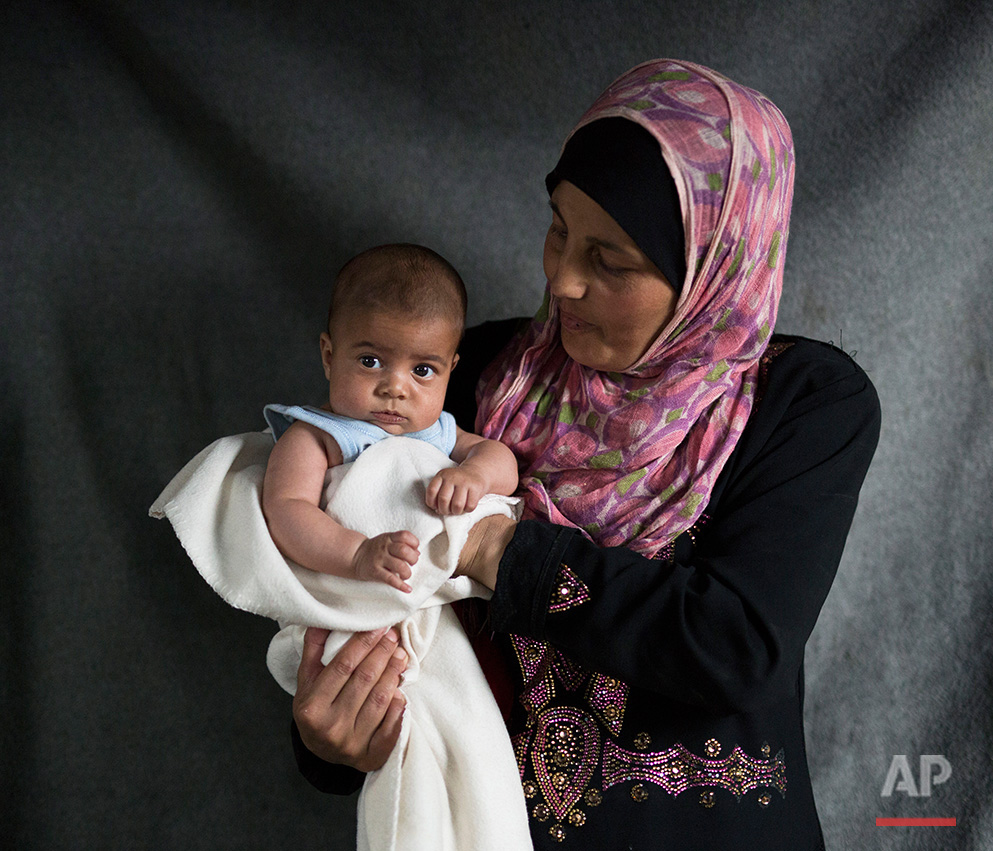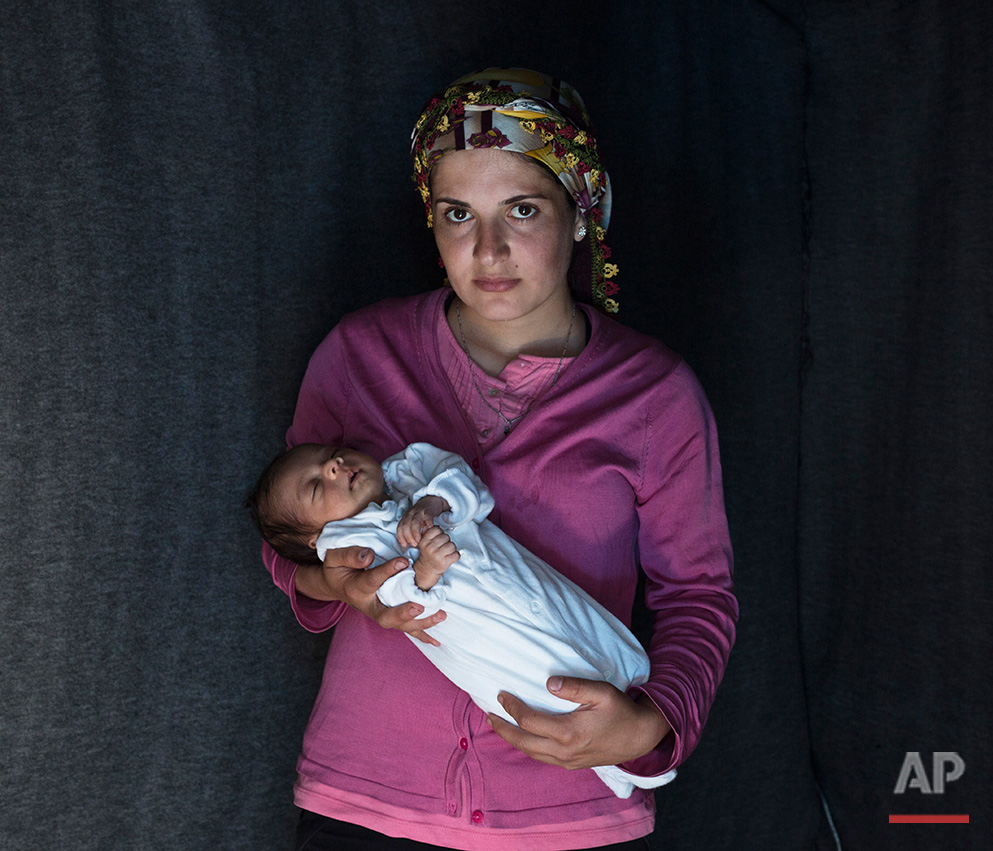Born a refugee

The women walked across the Syrian border into Turkey heavily pregnant, crossed the Aegean Sea in perilous journeys that risked their own lives and those of the babies they carried, because they dreamed of their children being born in a better world — in a peaceful, prosperous country in central or northern Europe.
But Balkan and European countries startled by the sheer number of people knocking at their doors shut their borders earlier this year, leaving pregnant women among about 54,000 people stranded in financially struggling Greece.
Trapped by the closure of the Macedonian border, dozens of women have brought their children into the world in refugee camps in Greece, of which the largest is the sprawling, impromptu camp at Idomeni, on the border itself.
There, women breast-feed their newborns in tiny tents, struggling to create adequate conditions in the alternating cold and rain or baking heat of the Balkan springtime. Most of the infants sleep on piles of blankets, while the luckier ones have baby cots donated by volunteers.
Uday was born on April 13. The entire first month of his life has been spent in the small tent his parents pitched in front of the Idomeni railway station, where his mother, 21-year-old Alia Mohamad, nurses him and struggles to quiet his constant crying.
"The way I'm thinking about it, I don't know what his future is," said Mohamad, who fled with her husband from Aleppo in Syria and has been in Idomeni since Feb. 28. "What I think is that my child's future is lost. With this situation and with what we're going through, I don't believe he will have a future."
Mohamad and her husband, Mahmud Kusa Ali, had hoped to reach either Belgium or the Netherlands and risked their lives to get to Europe. The boat that carried them from the Turkish coast punctured, she says, and they almost drowned. Now, they don't know what to do, and are considering that even a return to Syria would be preferable to the conditions they are in.
"I'm desperate because my baby was born in such conditions. The child is tormented and I am tormented with him," says Mohamad. "We managed to escape the war and we came here where they closed the borders on us. We just want to live in safety."
According to the local hospital in the nearby town of Kilkis, 120 women staying at Idomeni have given birth at the hospital since the start of the year, while one gave birth in the camp itself and was then transferred to the hospital.
Many have since been transported to other, more organized camps or been settled in local apartments with the help of aid agencies, but an estimated 20 newborns are currently spending their first months of life at the sprawling camp that at one point housed more than 14,000 people.
Among them is Fawaz, who was born on March 20. His home is a cluster of eight tents that form a small compound for an extended family from Syria, on the other side of the camp from Uday's family. He's dressed in a green baby suit as his mother tries to calm him with a pacifier.
Wajdan Shalhob, 34, and her 37-year-old husband Ishaq Shalhob, fled their home in Daraa with their 6-year-old daughter and 4-year-old son.
"We left the war not to live in tents, in the filth and disease," she said. Her family's dream, like that of so many others, was to get to Germany.
Despite pressure from Greek authorities for refugees to leave the sprawling Idomeni camp for organized refugee camps elsewhere, many of the women with very young infants are reluctant to move, fearing there will not be adequate care there for their babies. In Idomeni, volunteers and aid organizations have been delivering milk, diapers and other necessities for the children.
"Every day we spend here seems like a whole year," said Fatima Dali Hassan, a 25-year-old Kurd from Aleppo who arrived in Idomeni with her husband Abdul Rahman and three small daughters, when she was seven months pregnant, heading for Germany.
"We believed that in a month and a half we would be in a good place. I didn't expect that I would give birth here," she said.
The family's new member, a little boy they named Mohamed, was born in Kilkis hospital on March 27.
"I wanted to go to Germany because my relatives are there. We started (this journey) for a better future of my children," she said. "The schools in Syria were destroyed. There is no future for children there. Syria is destroyed for the next 20 generations."
Hassan says she prefers her little tent in a field in Idomeni to one of the organized camps, where she heard there was a shortage of milk for the children.
"I will wait until God saves us," she said.
One of Idomeni's youngest new residents is a baby boy born on May 1. His 23-year-old mother Nariman Khello, a Kurd from the pulverized Syrian border town of Kobani, cradles him.
Khello married her 29-year-old husband Khaled Khello a year ago and began her journey despite being pregnant. She's been in Idomeni for nearly three months now, living on the very outskirts of the camp where her husband tries to reinforce their small tent with blankets and plastic sheeting to give their newborn a bit more protection from the elements.
"We came here to go to Germany," she says. "Here, my baby has no future. At night it's very cold and in the day it's very hot. May God help us."
See these photos on APImages.com
Text from the AP news story, Newborns among residents of sprawling Idomeni refugee camp, by Costas Kantouris.
Follow AP photographers on Twitter: http://twitter.com/AP/lists/ap-photographers
Follow Petros Giannakouris | Twitter | Instagram
Follow Costas Kantouris on Twitter on https://twitter.com/CostasKantouris
Spotlight is the blog of AP Images, the world’s largest collection of historical and contemporary photos.
Written content on this site is not created by the editorial department of AP, unless otherwise noted.
Visual artist and Journalist

